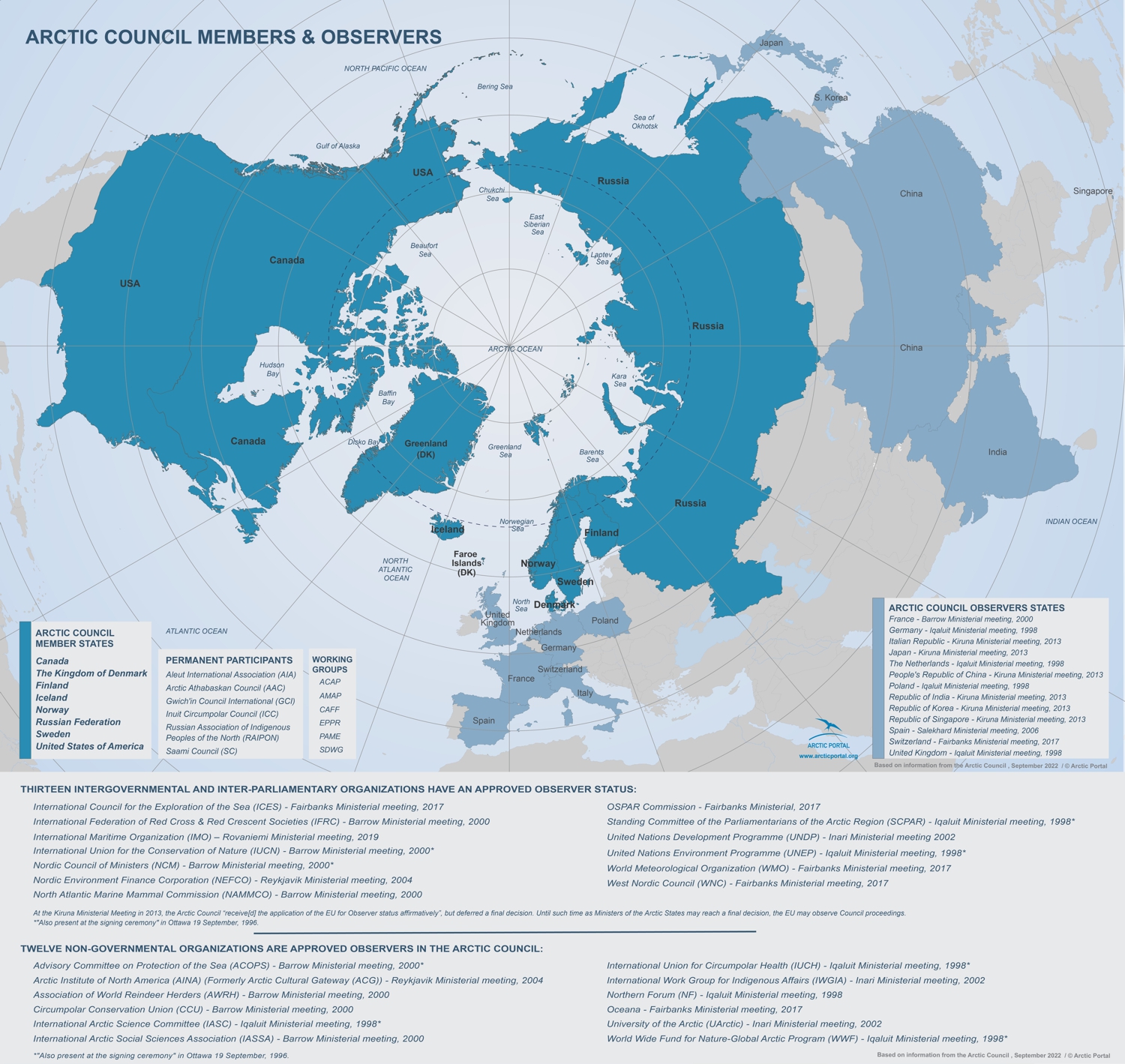In a highly interesting blog, Polar Points published by the Polar Institute of the Wilson Center on 27 July 2023, respected authors Edward Alexander,Evan T. Bloom offer their valuable reflections on the relationship between the Arctic Council and its Permanent Participants (PP´s), what it has achieved in the past, and where it might lead in the future.
The Arctic Council provides an important and unique platform for communication and cooperation between Arctic Indigenous Peoples, represented by six permanent participants delegates, and the eight Arctic member states, its working groups and the council's observers.
The author's main conclusions include:
- The active participation of the Permanent Participants in Arctic Council activities, including the IPS secretariat, requires adequate and assured permanent funding! The current situation is not ensuring full and equal participation of the PP´s and honoring the value they bring to the Arctic Council.
- Better communication and consultation is needed between member states and the PP´s. An example is the feeling of lack of consultation prior to the Arctic Council as a result of the Ukraine conflict. The community is concerned about the effects on the long lasting Arctic cooperation, increased military tensions and the halt of scientific collaboration at a critical time in a Global context.
- There are many reasons to preserve the Arctic Council as an institution despite the tensions caused by the Ukraine conflict as rebuilding it later will take much time and effort, if at all possible.
- the importance of Indigenous representation and Indigenous Knowledge in international relations and agreements needs to be accepted by the leading Arctic States as the USA, advocating these values internally and externally.
About the authors:
Edward Alexander is a Co-Chair and the Head of Delegation for Gwich’in Council International which represents the Gwich’in of Alaska, the Yukon Territory, and the Northwest Territory on international affairs, primarily at the Arctic Council.
Evan T. Bloom is a Senior Fellow at the Polar Institute of the Wilson Center, and a former senior diplomat at the U.S. Department of State who worked on Arctic affairs. Together, the authors contribute to the Study of Environmental Arctic Change (SEARCH), a National Science Foundation-funded research collaboration bringing together Indigenous Knowledge, science, and policy.
Polar Institute
Since its inception in 2017, the Polar Institute has become a premier forum for discussion and policy analysis of Arctic and Antarctic issues, and is known in Washington, DC and elsewhere as the Arctic Public Square. The Institute holistically studies the central policy issues facing these regions—with an emphasis on Arctic governance, climate change, economic development, scientific research, security, and Indigenous communities—and communicates trusted analysis to policymakers and other stakeholders.
Source: Polar Institute
Read more about the Arctic Council on our webpage
Map: Arctic Portal.org

